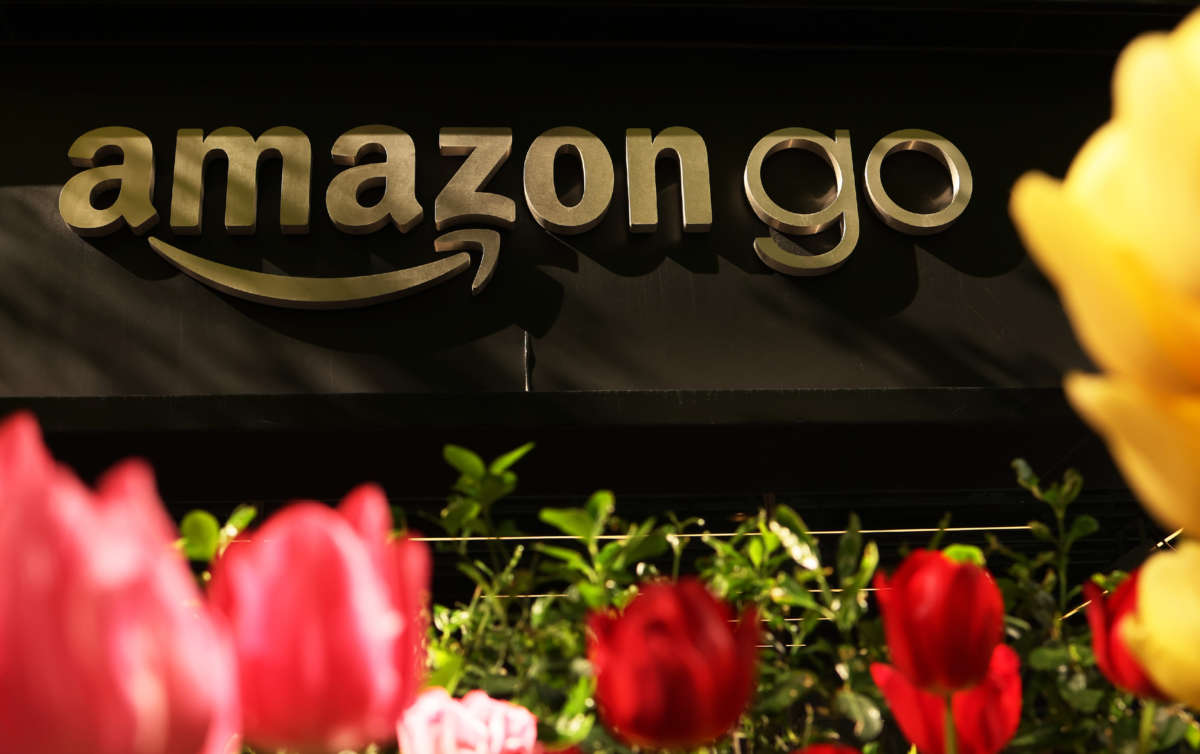Despite claiming to support abortion and reproductive freedom, corporations are donating millions of dollars to conservative groups that oppose abortion and support bans on the medical procedure.
As reported by Popular Information, in the last six years, corporations like Amazon, Walgreens and Google have made hundreds of thousands of dollars in donations to anti-abortion political committees like the Republican Party’s leadership funds — the National Republican Senatorial Committee (NRSC), the Republican State Leadership Committee (RSLC) and the Republican Governors Asociation (RGA). Other corporations like Coca-Cola, CVS and Walmart have each given over a million dollars to such groups since 2016.
Together, Amazon, AT&T, Citigroup, Coca-Cola, Comcast, CVS, General Motors, Google, T-Mobile, Walgreens, Walmart, Wells Fargo and Verizon have spent at least $15.2 million to support anti-abortion politicians, according to publicly available political spending disclosures. This total doesn’t include donations made through private corporate lobbyists or support for right-wing nonprofits like the Heritage Foundation, as those donations don’t need to be disclosed under current campaign finance laws.
As the Supreme Court hinted it will soon do this week, right-wingers have been working to overturn Roe v. Wade for decades, and these companies have thus contributed to the erosion of reproductive rights.
For instance, in a 2017 report on “Women in the Economy,” Citigroup said that women are being held back by things like “restrictions on their reproductive rights,” and that the company wants to ensure “women are empowered to be free and equal participants in a robust, sustainable, and inclusive global economy.” As Popular Information finds, however, Citigroup has donated $685,000 to anti-abortion political groups since 2016.
AT&T also claims to support “gender equity and the empowerment of women,” according to its 2020 Diversity, Equity and Inclusion report, but has given at least $1.4 million to groups that oppose abortion. The company has also become one of the largest donors to conservative groups – it is one of the top donors to politicians who supported Texas’s abortion ban and is also the primary funder for far-right outlet One America News.
It’s important to recognize that, though people other than women can become pregnant, conservative anti-abortionists often don’t recognize this fact — and neither do many mainstream advocates of abortion rights. Thus, many corporations use trans-exclusive language to refer to abortion and reproductive rights as “women’s rights” even as they claim to be progressive. (In fact, attacks on body autonomy — such as bans on gender-affirming care or abortions — go hand-in-hand, often happening simultaneously.) At the same time, trans men and nonbinary people who can get pregnant also face gender-based discrimination that’s rooted in misogyny, patriarchy and heteropatriarchy at work and in their day-to-day lives.
Just as the news of the Supreme Court’s draft decision on overturning Roe was breaking this week, Amazon announced that it will be giving its non-contract workers reimbursements of up to $4,000 a year for travel expenses related to an abortion. Many of the company’s poorest and most vulnerable workers would be excluded from the benefit, but the company gained positive headlines from the announcement nonetheless.
Despite this new benefit, the company has donated to groups that are actively making it harder for its employees to get an abortion. The company has given nearly $1 million to anti-abortion groups, including nearly $780,000 to the RGA — a vital group as governors, with their veto power, can sometimes be the only person standing between a Republican-controlled legislature and the public’s reproductive rights.
Join us in defending the truth before it’s too late
The future of independent journalism is uncertain, and the consequences of losing it are too grave to ignore. To ensure Truthout remains safe, strong, and free, we need to raise $43,000 in the next 6 days. Every dollar raised goes directly toward the costs of producing news you can trust.
Please give what you can — because by supporting us with a tax-deductible donation, you’re not just preserving a source of news, you’re helping to safeguard what’s left of our democracy.
